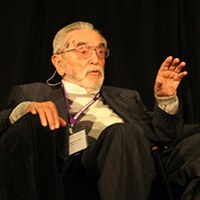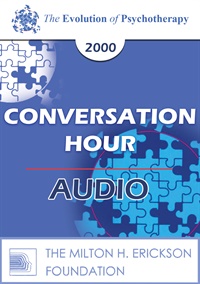EP00 Conversation Hour 15 - Salvador Minuchin, MD
- Average Rating:
- Not yet rated
- Topic Areas:
- Conversation Hours | Family Therapy | Cultural and Social Contexts
- Categories:
- Evolution of Psychotherapy | Evolution of Psychotherapy 2000 | Pioneers in Couples and Family Therapy
- Faculty:
- Salvador Minuchin, MD
- Duration:
- 1 Hour 03 Minutes
- Format:
- Audio Only
- Original Program Date:
- May 28, 2000
- License:
- Never Expires.
Description
Description: Minuchin reflects on his evolution as a family therapist, shaped by his cultural roots and experiences with close-knit systems. He challenges therapists to move beyond individual focus and address the broader social and economic forces that shape family dynamics. Offering both critique and inspiration, he advocates for collaborative, targeted interventions that honor complexity, especially within evolving family structures and institutional constraints.
Educational Objectives:
- To learn the philosophies of various practitioners and theorists.
*Sessions may be edited for content and to preserve confidentiality*
Credits
Handouts
| Timestamped Transcript (721.5 KB) | 16 Pages | Available after Purchase |
| Ericksonian Learning Snapshot (246.8 KB) | 2 Pages | Available after Purchase |
Faculty

Salvador Minuchin, MD Related Seminars and Products
Salvador Minuchin, MD, developed Structural Family Therapy, which addresses problems within a family by charting the relationships between family members, or between subsets of family. He was Director of the Philadelphia Child Guidance Clinic. Although it was minimally staffed when he began, under his tutelage the Clinic grew to become one of the most modeled and respected child guidance facilities in the world. In 1981, Minuchin began his own family therapy center in New York. After his retirement in 1996, the center was renamed the Minuchin Center. Dr. Minuchin is the author of many notable books, including many classics. His latest is Mastering Family Therapy: Journeys of Growth and Transformation. In 2007, a survey of 2,600 practitioners named Minuchin as one of the ten most influential therapists of the past quarter-century.


